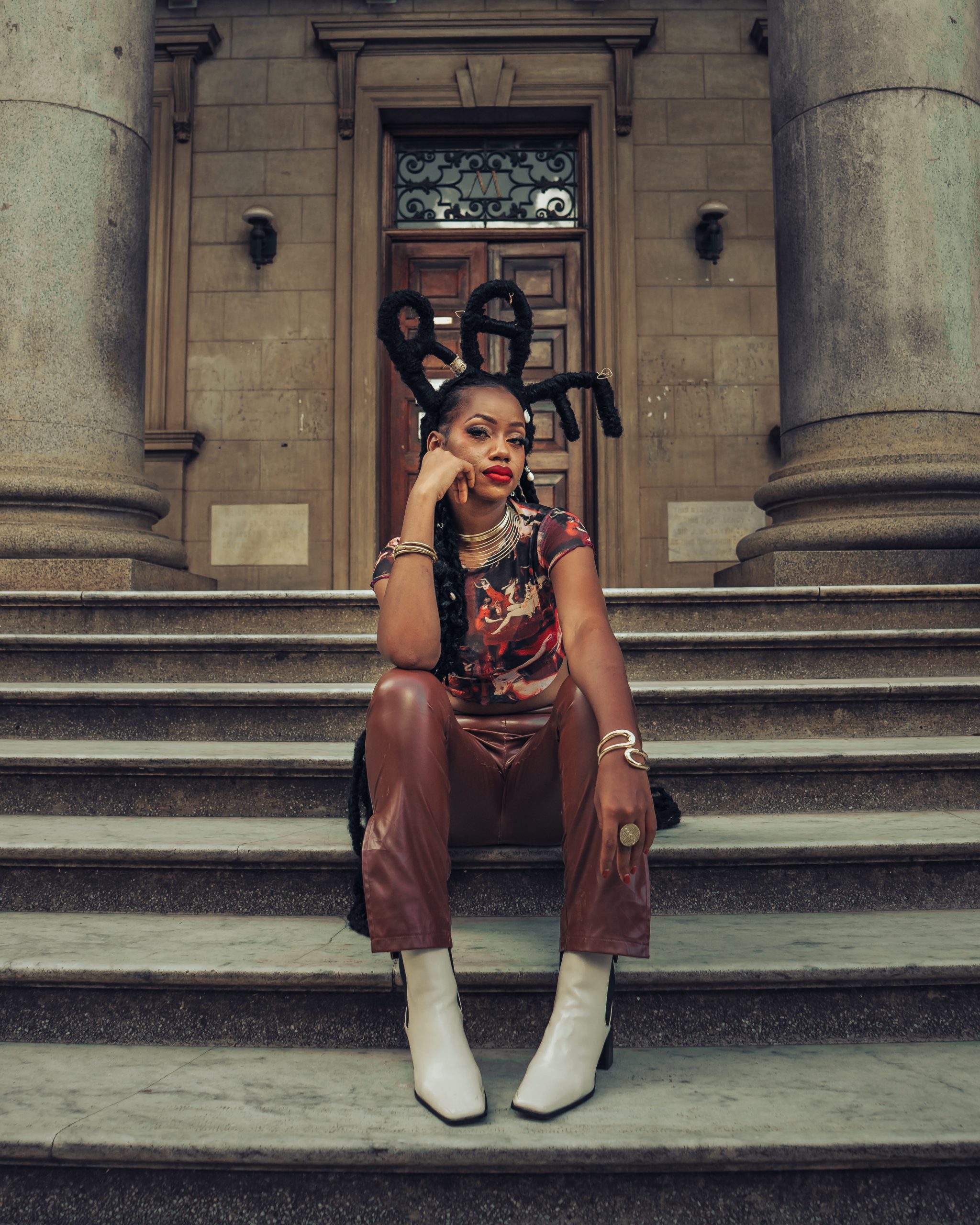Artists like to express their truth, which is a given because creativity is truth-telling in the most artistic way possible. Many artists like to draw inspiration from abstract experiences where they talk about things that aren’t theirs but feel the current audience wants to listen to or relate to. Some artists also express truth-telling from the lives that they’ve lived in hopes that people can touch upon, and relate and relish in their artistic freedom. There are, however, very specific artists who speak their truth; the songs, thoughts, and ideas that people generally wouldn’t dare to touch on because they feel it’s too vulnerable, and makes them come off as fragile, weak, and meek. These artists just want to express their experiences in the most versatile way possible for people to resonate and feel seen. One such artist is Njerae.
Njerae grew up with a love and passion for music. As a Kenyan. She stayed in touch with the Kenyan music sound through the legendary band, Sauti Sol. Sauti Sol, unknowingly, would influence one of Kenya’s first rising and artistic storytellers of today. She started singing along to music when she was a child. It took her entering the music space to understand that songwriting was an integral part of creating music. Right after high school, she joined Sauti Academy where her drive to make music was born. She states, “I was still involved in a couple of different music things, and it was mostly on the side because I would do things during the school holidays to keep myself busy but it was never number one. After I finished with the Sauti Academy, I joined the University, and I just decided that I wanted to do music. I did psychology and performing arts at the University.”
Njerae always sings from her experiences. Her music is very much into the difficult conversations about life and love, which is often misinterpreted by people as toxic love songs. During the interview, she states, “I don’t think I write toxic music. I think I’m just vulnerable and people dub it as toxic but to each their own.”
She’s about to release a new song called “Gone”, which features Canadian artist Preston Pablo. For the single, she says, “Gone” wasn’t necessarily written about something that was happening at the moment, but it’s a part of my journey. It’s something that I went through at some moment in time. That’s usually the point….”
In a conversation with iMullar, she speaks about her journey, influences, new single, “Gone”, and more.
This interview has been edited for clarity and length.
Can you introduce yourself to the audience?
My name is Njerae. My government name is Njeri Mwengi. I started singing when I was three years old. I was doing the Kenya Music Festival for 12 years; doing classical sort of music. It’s a competition now. We judge things like notes, you know, the professional type of music. It’s not expressive at all. I’ve been doing music all of my life. I started writing music when I was in high school and it was a therapeutic thing for me. Because I’m very introverted, it was my way of speaking about my problems. After high school, I joined a school called Sauti Academy here in Nairobi that focuses on improving not only music but the music business in the country. After that was when Njerae was born; In 2016. I’ve been pushing and trying to make it since then. That’s when I decided I wanted to do music full-time.
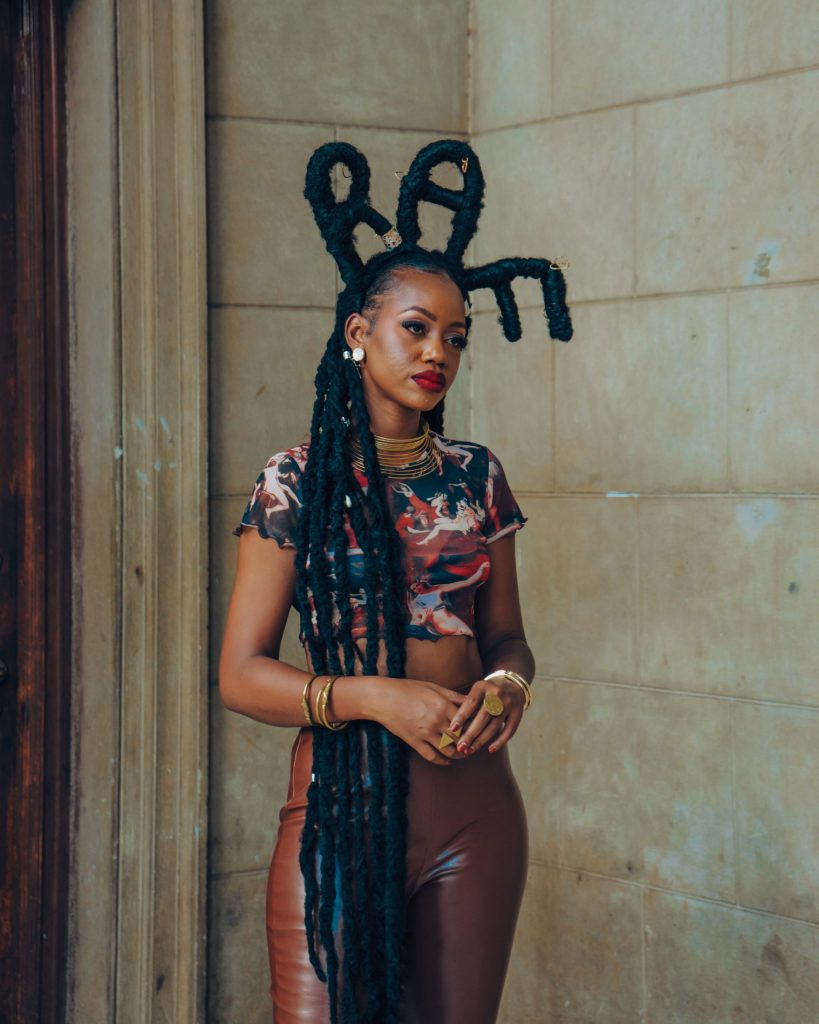
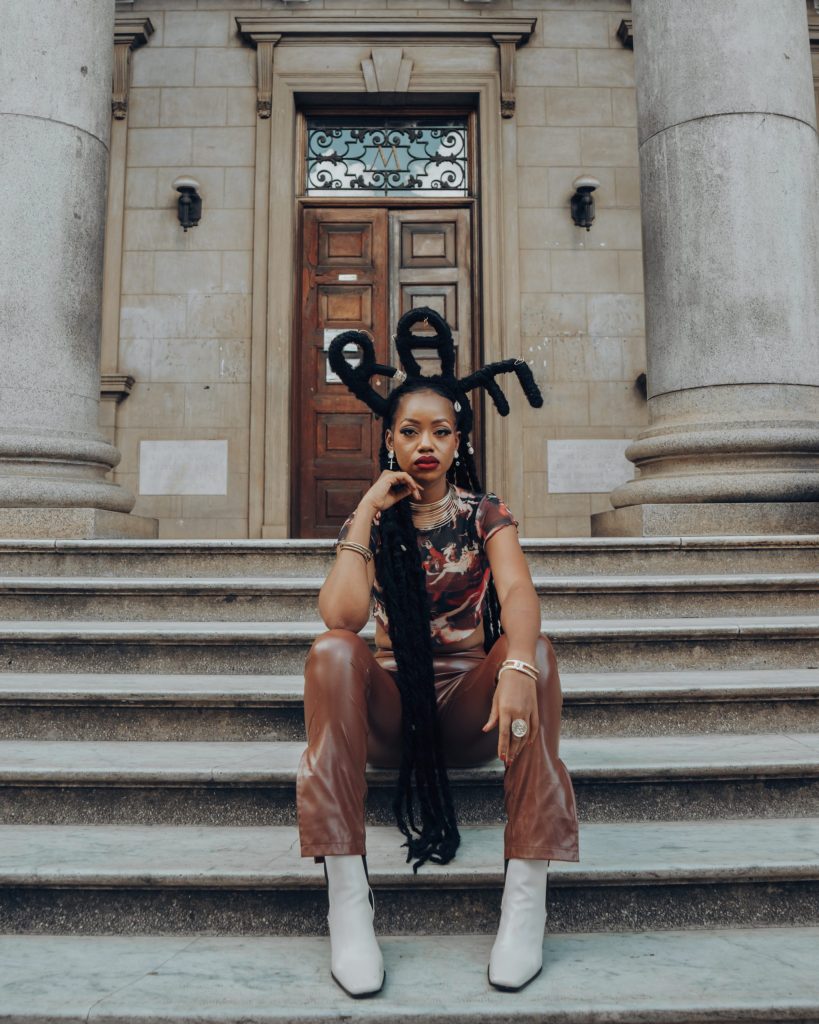
When did you make your professional debut?
If I’m not wrong, 2019 or 2020, I think. So the song called “Anayefaa”, I think that was the song where I sort of understood what I was doing at that moment. I had released music before under different names but at that time, I was just doing this thing that I loved. Around that time, I knew what it took to be a musician and what it took to push your music as well.
What were your musical influences growing up?
Growing up, I listened to a lot of Sauti Sol. I was listening to a lot of Tori Kelly. I also grew up in the church so I was listening to a lot of, like, Tasha Cobbs and Hillsong. I think that because I was doing music festivals a lot during my childhood, I never understood that music could be fun. With that setup, there are specific rules that you have to follow, and if you don’t follow those rules, then it’s an evident failure. With songwriting and just creating your music, I can write a song with no lyrics and it can be a hit. When I discovered people like Sauti Sol, I didn’t know songwriting was a thing; Imagine. In my childhood, I didn’t know songwriting was a thing; I just enjoyed telling stories in my music, and for a long time, I felt like my music would be dubbed as white girl music. I think that’s the best way I can put it because it didn’t have a lot of Kenyan or African aspects or things that you could put in that bracket. Over time, I realized that as a country, we’re very, should I say misinformed. We’re still growing as an industry so I didn’t necessarily work on changing the way I wrote to fit the industry. It was more of presenting myself the way I am.
How do you approach your songs?
The first thing for me when I’m creating is to understand what I want the audience to feel and that will inform the lyrics, melodies and the type of instrumentation to be used. My music is centered on a feeling. That’s the root of all of it. When I’m in the studio, I decide if I want people to be sad or if I want them to be dancing.
Let’s talk about “Aki Sioni”. What was the creative process for “Aki Sioni”?
“Aki Sioni” is a bit of a very interesting song because it is part of my debut album and it was never a spotlight song. It was just a song in the album. One day I woke up and it was a huge hit. When I was writing “Aki Sioni”, I was thinking about relationship culture and how we dub guys as the ones who give us empty nothings and like to lie to us with words like “I can’t sleep without you” or “I can’t eat without you”. I was thinking I could do that from the perspective of a woman, which is something that we don’t usually do. We are mostly like the submissive ones. I wanted to bring in a little toxic energy. I think people fell in love with it so much because “Aki Sioni” is a very popular phrase in Kenya. It means “I don’t see it happening”. It’s something that’s used a lot in Nairobi. There was a time when generally, in Kenya, we were very hostile to Kenyan music. Then around the 2022s and 2023s, people became very, I don’t know if I should say, woke. Everyone wanted to be identified as a Kenyan. So people started listening to a lot of Kenyan music and interacting with a lot of Kenyan culture. That’s also the time that “Aki Sioni” became a thing.
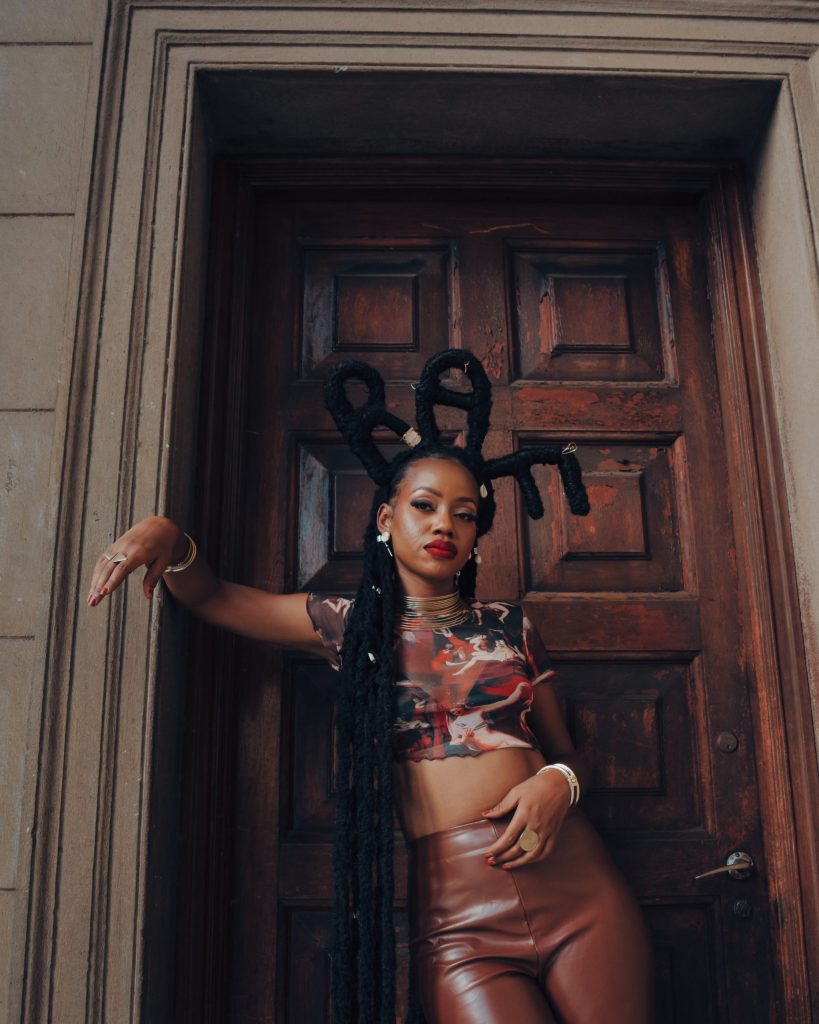
Was it around the same time of the resurgence of Kenyan music that you released your “Unintentional” album?
It was not. That happened like a year later, and with me releasing my album, it wasn’t like a calculated move. It was like a pressure thing because I had been performing for all these years; From 2016 up to 2022. People knew my music because I don’t sing covers. People knew my music from me being on stage, but they didn’t have a place to go and listen to my music when they were home. The album was my way of dealing with that problem because I wanted people to come, listen to the songs, sing them, go home, and listen to more music. With “Unintentional“, I wasn’t doing it for any other purpose other than just giving my music to my fans.
Can you talk us through the process of “Four Letter Word”, the project you released earlier this year?
With “Four Letter Word”, I got signed to Universal, which was, like all my problems were gone. I don’t know if that makes sense because I never had a problem with writing music or creating. It was always what happened after. We need finances to release, and to shoot a video. We need a person who understands marketing to do all of these things. So “four-letter word” was the first thing that I did, that I understood and knew it would be heard the way I wanted it to be heard. At the time, I had already started getting all this recognition and I was named the Kenya Lover Girl. I wanted to do something for my lovers during the lovers’ season. I felt like it was very appropriate, so I came up with a “Four Letter Word”.
“Beg For It” seems quite like a title for a lover girl. So what made you go with “Beg for it”?
“Beg For It” was a song that I started writing in 2022 but I never got around to working on it until much later. The only thing that I had was the first verse and I didn’t know where the chorus was going to go. Around that time, I was listening to Nick Jonas a lot and you know how his sound is very choir-based. It’s like, everyone should sing along and you can feel the emotion in not just the lyrics, but the way the sound is. That’s what I wanted with “Beg For It”. Even the title, “Beg For It”, bleeds a sort of pain, in the form of lust or want. My music is very heavy emotion-wise. It depends on whatever side you are looking at, but it’s very heavy emotion-wise.
From “Beg For It” to “Gone”, which is the title of your new song. How did you transition from begging someone for it, to being unable to live without them?
I’m always just in this cycle of in love, and out of love, in love and that’s what I like to write about in my music because I feel like the love life in Nairobi is very much around that cycle of two days you’re with someone and then two days later you’ve moved on with someone else. With Gone, the way I wrote the song is that there was a time I used to listen to a lot of instrumentation music on YouTube when I fell asleep. One day I woke up and this thing was playing in the background, and I just started singing “You are gone”. It wasn’t necessarily something that happened in my life or is personal to me. The thing that I like about it is the emotion in the song, and the way the instrumentation called for those words. A lot of the time, people are afraid to say things like this; “I can’t believe that you’re gone”, and “Oh my gosh, I still want you here”. Human beings are generally inclined to pretend that they’re okay, move on with life, and act like things are cool. With me and my music, the point is to speak about these things that people are afraid of outlining.

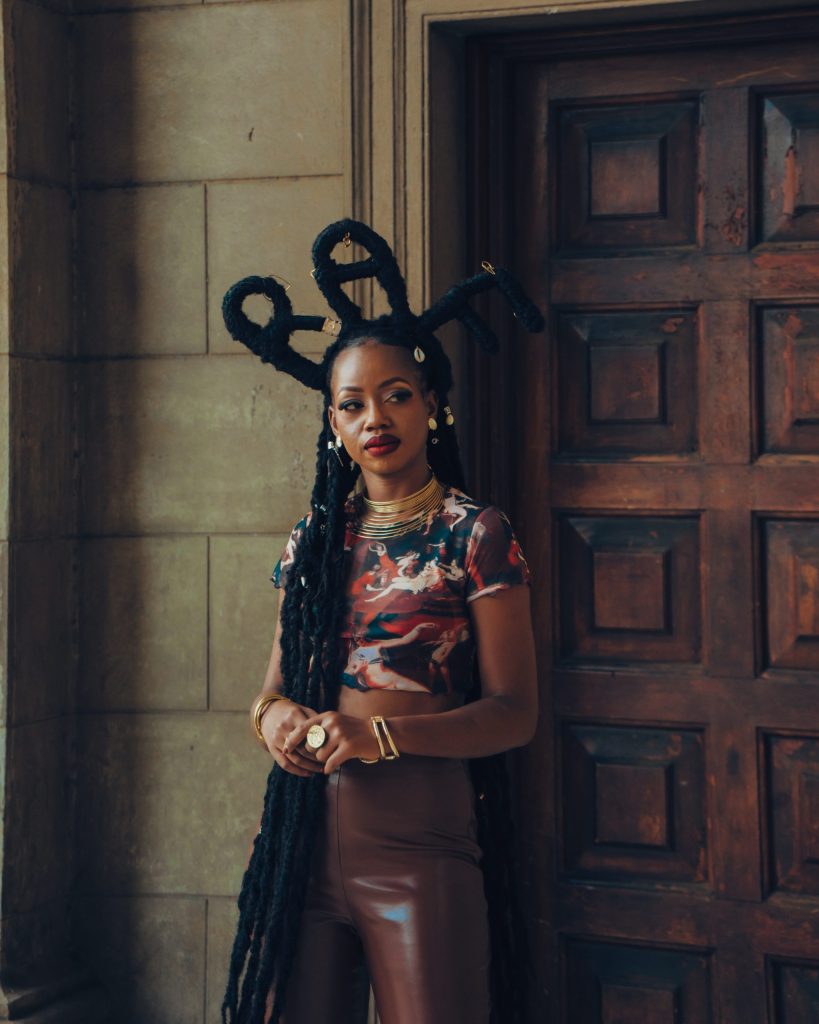
“Gone” tilts on a tightrope between vulnerability and toxicity. How were you able to strike that balance between vulnerability and toxicity on the record?
I’ve come to realize that it helps to speak, and let things out, whether it’s good or bad. That’s one of the reasons why it cuts across that line of vulnerability and toxicity because, of course, I care about myself and I want you to come back, but at the same time, I still want to open up and be vulnerable with you because it’s something that we shared before. I think there’s nothing that I write about that is not 100% part of my life because it’s something that I’ve experienced. It’s just that it wasn’t happening at that particular time. What makes music so beautiful is its vulnerability because people gravitate and relate to it especially when they listen to the songs alone in the corner. Those are the songs that I love; The ones that people get to sing along to alone in the dark and can be true to themselves and be vulnerable. I’m very vulnerable like that in life; I don’t tend to keep a lot of things in my heart. I’ve learned the art of letting things out so I wanted to put that in the music as well.
What is your concept of love and how do you want it to be translated to your music?
It’s a beautiful thing. It’s part of the journey of growing up. I honestly believe that if you’ve not been in 15 relationships by the time you’re turning 30, then you’ve not lived. Generally, I don’t think I speak of love in the sense of being in a relationship with someone. It can just be like these small infatuation-type things or having a crush on someone. You meet someone one day, and you’re like, “Oh my gosh, I love you so much”, and then you never see them again.
Working with Preston Pablo on this song, how did the chemistry and connection happen?
Preston is cool. I’d like to say thank you to Universal for picking us up with this collaboration. Preston’s music is heavily founded on love and that whole concept and idea of relationships, so I felt it was very appropriate to talk about this subject matter and he executed it perfectly.
Are we seeing a live performance, or music video for “Gone”? Or are you waiting to see how it goes? What’s the plan?
It’s my first international collaboration so there’s going to be a lot of things around it. There’s a music video. There’s a whole bunch of performances. I think there will be a time that Preston will be in Kenya so I’m pretty sure we’ll get to work with the music as well. The whole point of the song was just to open me up to the world and not just East Africa alone. We worked on this song last year so it’s interesting that it’s coming out now. Because of this song, there have also been a lot of collaborations that have come out of it. It’s opening a lot of doors for me, which I like. I’m eagerly waiting to one day go to Canada and maybe do a small media run.
Is there a line in the song that you hold on to or do you find yourself humming that stems from an experience in your life? And how did you navigate through that?
The line would be in the chorus. “Maybe I don’t want to move on because it’s too hard to fall again”. I think that sums me up entirely. Like I said, I’m very introverted. It takes a lot for me to put myself out there with people, especially when I’m not in that space of being Njerae. I feel like a lot of the time it’s not really about just love. You can interpret it in any way but a lot of the time we are scared to take a step further because we don’t want to fail.
How would you interpret your new record, “Gone”?
My music is just an expression. It’s for me to let something out. “Gone” wasn’t necessarily written about something that was happening at the moment, but it’s a part of my journey. It’s something that I went through at some moment in time. That’s usually the point; Not necessarily to be toxic or to spread any violence. I don’t even know where the toxicity comes from because I don’t see it. I think at the end of life, there’s always that one person that you don’t end up with that you wish you had. I think that’s general for everybody, even married people. For me, that’s what “Gone” is trying to do. I’m here and I’m with someone else, but it’s really hard for me to believe that you’re gone.
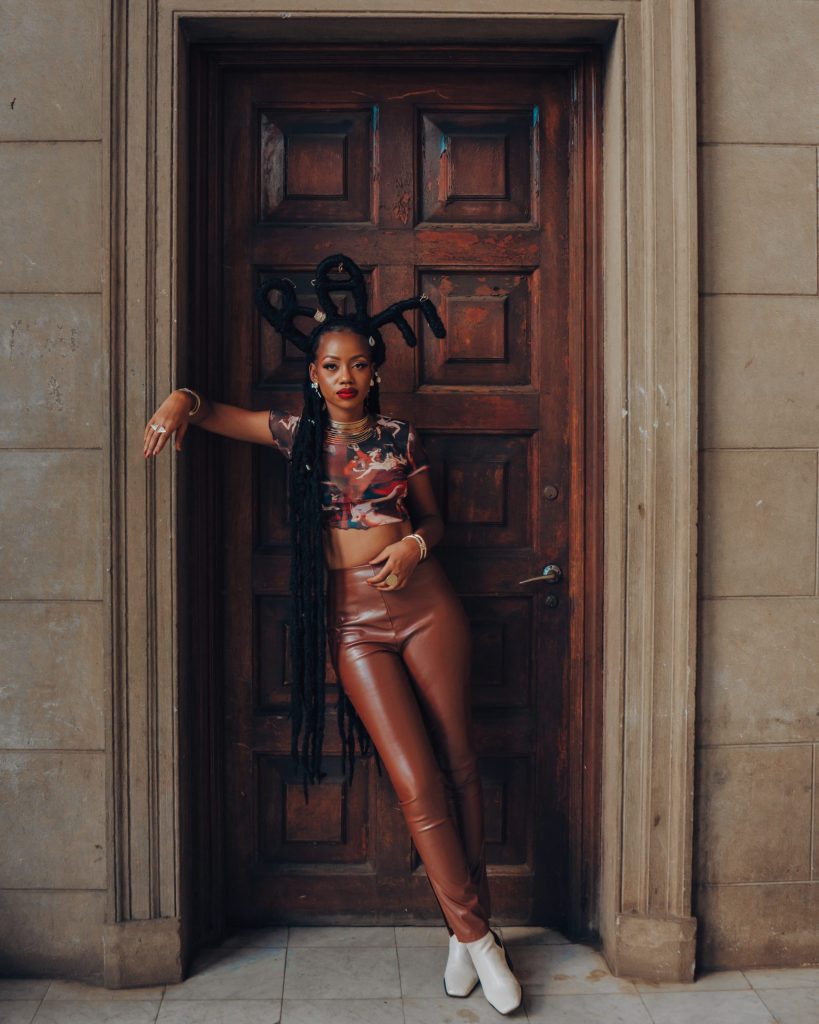
As an artist, where do you feel more natural? On stage, in the studio, or when you’re having these live sessions?
I love being on stage. I think on stage is where it’s at. You’ve already created the music, it’s your time to shine. Everything that you do on the stage is for you to shine. With the studio, the studio is a very vulnerable space for me. I don’t like people being in my studio sessions because I want to feel all of these emotions so that I’m able to write the thing that I want you to feel. I enjoy performing. I think performing also gets me out of my box. I get to do things like dancing, which I’m not a dancer but I try. Interacting with the fans; It’s usually so much fun. I enjoy watching people sing along to my music.
Aside from music, if you wanted the world to know your message, what would it be? Arts, production, or theatre?
I think it would be production. Production and guitar playing. I think if I was doing something else that’s not singing, but still on the music side, it would have to be those two. If I was doing something aside from arts, I’d want to be a vet. I love dogs.
Everyone is now focused on Africa. Seeing how African music is blowing up, what do you think you can do to contribute to this ongoing resurgence of African music on the global stage?
I think being authentic and being true to who we are and making our culture go a long way. If we are proud of our Kenyan culture instead of trying to emulate the culture of different countries, I think that would help to go a long way. I also think that there is a growing love for African music because we are just now starting to embrace and realize how beautiful our culture is.
Is this song a lead-up to another project or do you have other plans for 2025?
There are a lot of things coming out. There’s an album dropping by the end of the year, and before that, some singles, and a lot of collaborations. There are a lot of good things coming out this year.
Follow @theimullar on Instagram and X(Twitter) for more.

